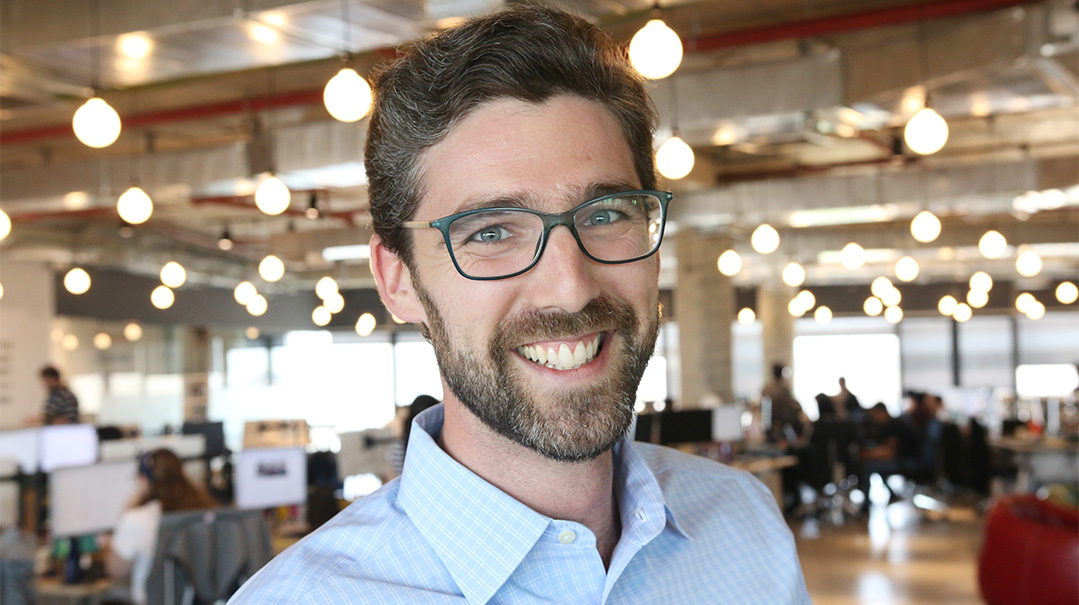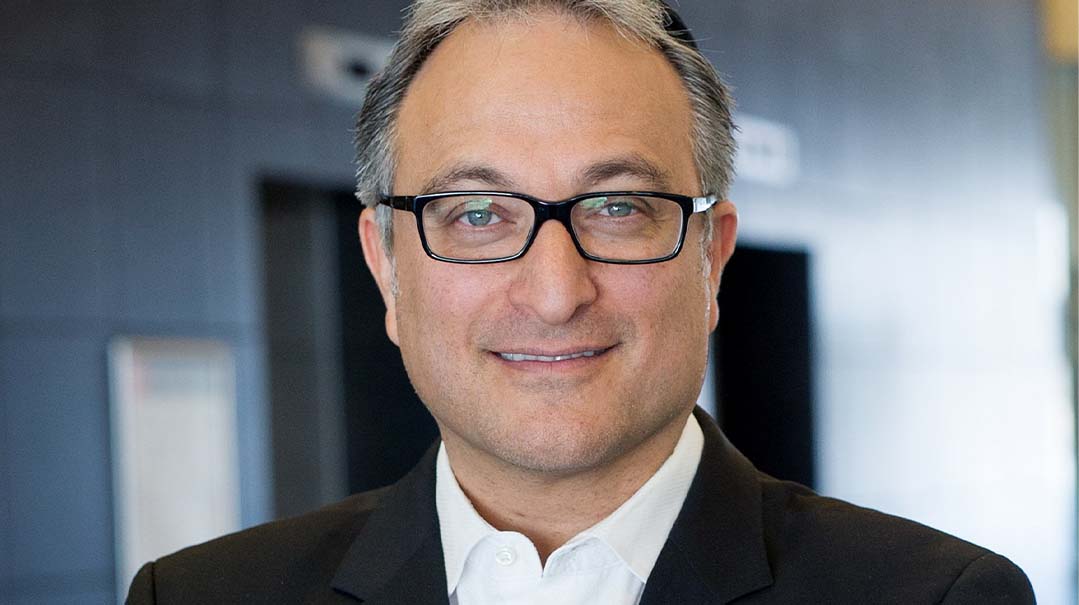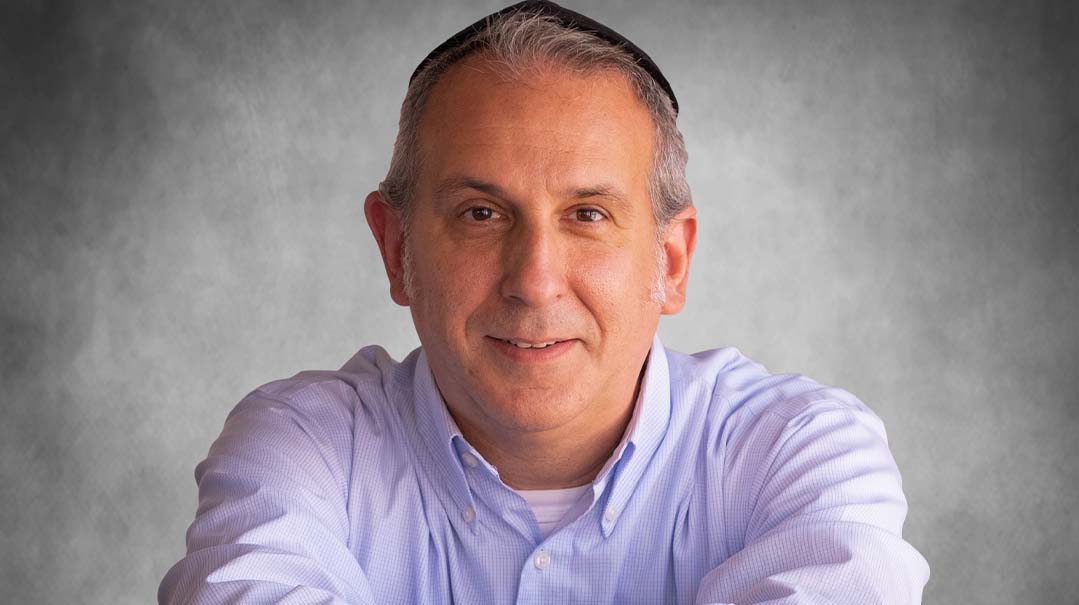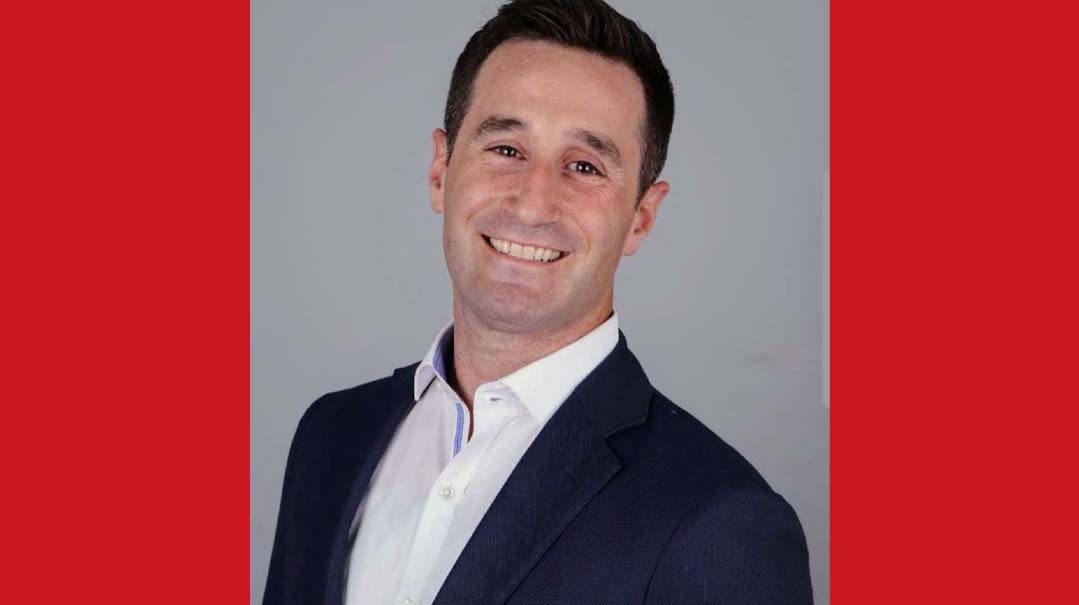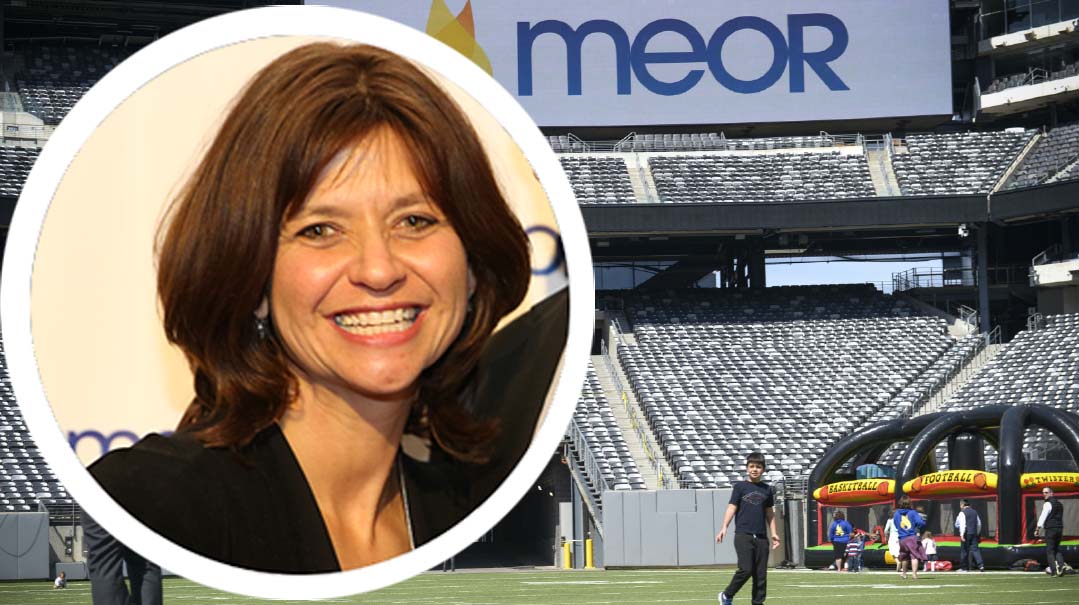Work/Life Solutions with Howard Jonas

Follow your vision, and stay true to your beliefs and principles. Never just go along and never discard your beliefs. Spirituality is not “juggling” — it’s priorities
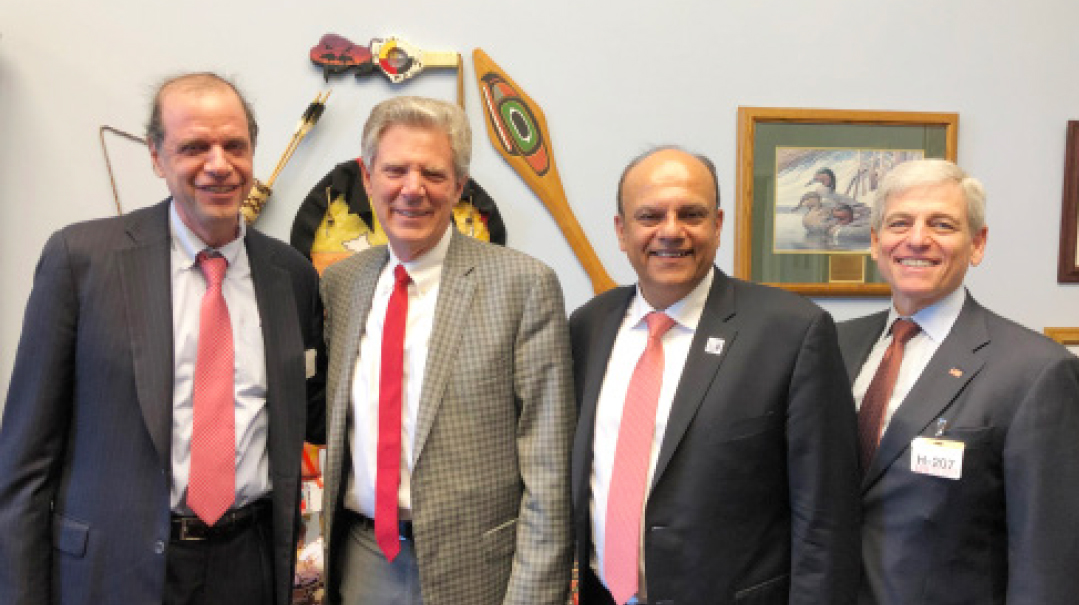
Who: Howard Jonas, serial entrepreneur, best known as the founder and chairman of IDT, a multi-billion-dollar telecommunications corporation.
What: At the age of 14, Howard started hustling as a hot-dog vendor outside a local hospital. His drive for success then led to driving a delivery truck and to study economics at Harvard. In 1979, when he was 23, he founded Jonas Media Group, and in 1990 he founded long-distance provider IDT Corporation, and has been chairman of the board since its inception. But his business interests go far beyond IDT. He made a splash in 2000 by selling a stake in the Internet calling company Net2Phone to AT&T for more than $1 billion; in 2017, he sold Straight Path Communication to Verizon for $3.1 billion (even though just two years earlier, he considered Straight Path his biggest business mistake); Genie Energy is his power and oil-related company; and recently, he’s also been highly focused on Rafael Pharma, his drug developer that is testing treatments targeting pancreatic cancer.
Why: Like many of us, I’ve always considered Howard Jonas to be a legend. From his wildly successful business endeavors to his grandiose philanthropic activity to his life as an Orthodox Jew (20 years ago, he founded The Yeshiva at IDT, located in the IDT corporate building in Newark, NJ, as a place where high school graduates could receive a technical education while continuing to learn Torah in a yeshivah atmosphere), he seemed to be an unrelatable paragon of success.
But just a few weeks ago, when I read the newly released edition of his 2006 book, I’m Not the Boss, everything changed. Completely transparent and vulnerable, Howard opens up about his humble beginnings in the Bronx (he never bought anything that was not on sale), his meteoric rise to success (and subsequent crash), and the clinical depression (and suicidal tendencies) that followed. He places heavy emphasis on family (he has nine children and many grandchildren), and credits his wife with his ability to survive.
The book is authentic and raw; it’s meaningful and inspiring. And as so many of us confront elements of loneliness, anxiety, and depression during these challenging times, we can be thankful to Howard for sharing his personal story, which offers insight into how to become a happier person by recognizing what’s truly important in life — and Who is really in charge.
1 of 9: What opportunities or personalities played a role in your career?
One of the biggest influences in my life was my grandmother. When I was a little boy, I’d spend almost every weekend on an overnight at Grandma’s. We’d open the sofa bed, watch old movies, read the Sunday comics, and then Dad, Mom, and my sister would come over and I’d help Grandma cook up a special meal of potato latkes and fried chicken for the whole family, after which we’d all watch the Jackie Gleason Show. When I got my license, I’d take her for drives in the country. Those were special memories, but underneath the fun, I learned a lot. I learned from Grandma about character, strength, and self-sacrifice. Although I was born two decades later, I witnessed how someone could go from being a wealthy man’s wife to a widow with a young child in the Depression, taking in borders to stave off foreclosure. I learned how a person could work day and night in an unheated newsstand to feed her son and also raise her kid brother. How one can remarry to give her son a father while silently suffering because the flame had never died for her first husband. I learned how someone could endure all this hardship and never complain, but instead just brim with joy nurturing her grandchildren. I also learned the reality of being poor. What it’s like never to buy anything unless it’s on sale or with a coupon, to make your own clothes, to turn out the lights whenever you leave a room.
And I don’t know where I’d be without my wife, Debbie, who’s been at my side over all these years. She used to help out in the office. Then, when we had our first baby (of eight more to come!), she brought the baby to play. By the time we had four kids, though, she needed to be home with them all the time.
I suffered from depression, but Debbie got me through it. It happened twice in my life, and it was like she had another kid to take care of. She’d be strong with me, which was what saved me — she’s the one who convinced me to cross the bridge without jumping off.
I was 14 when I started selling hot dogs on a street corner in the Bronx. My dad helped me build the stand in our garage, and today I run a multibillion-dollar telecommunications company. So people tend to be impressed by “success stories” like mine. But although the life story is mine, the success isn’t. Even if I’m riding on top of the world now, I’m intensely aware that it could all come crashing down tomorrow. The truth is, I look at life differently than most people I know. I’ve been called quirky, unorthodox, a maverick. But life has taught me that I’m not really in charge, that I’m not the One pulling the strings, and most of all, it’s been my developing emunah in Hashem over the years that has brought me through every crisis or opportunity.
2 of 9: Which three character traits have played a key role in your career path?
Enthusiasm. For whatever project, business, or philanthropy I’m involved in.
Empathy. For others who may be having a more difficult day or year than me.
Vision. I have a capacity to envision the future and what needs to be done to get there.
3 of 9: What do you do to relax, recharge, or simply have fun?How do you make time for that, and how often?
Shabbos is the greatest recharge of all. With the exception of two weekends over the last 40 years (when I was alone with my wife), I’ve always spent Shabbos with the kids around the table. We speak, we play, we catch up. Family is revitalizing for me, and it’s automatically part of my schedule.
Part of Shabbos is turning off. But when you’re building something big, with so many moving parts and people, that can be very difficult. It used to be that my Shabbos only felt like it began two or three hours after candle-lighting, because that was when I could finally clear my mind and calm down. But I eventually got there — I got that quality time with my family and I got to see the world from a new perspective.
There are also two more daily activities I do to recharge: First, I exercise every day, because I find it’s important for both my physical and mental health. Second is learning Torah. I learn while I drive and while I exercise, and there’s nothing like Torah to stimulate my brain. I recently finished the daf yomi cycle, which was unbelievable, and I particularly love Torah podcasts. My favorites are the ones produced by the Yeshiva of Newark at IDT. Under Rabbi Avraham Kivelevitz, the rosh beis medrash, we put out two to three podcasts a day, and I enjoy them at least as much as the talmidim and company employees.
4 of 9: What would you say was your most resounding failure, and what did you takeaway from that experience?
At a certain point, IDT, the company I spent most of my adult life building, was worth over a billion dollars. But a bout of depression, which lasted close to a year, forced me to give up running the company, and we lost literally 99 percent of our value on the New York Stock Exchange. We were literally days away from bankruptcy, especially since we owed the IRS over a hundred million dollars that we didn’t have. I went from almost incalculable wealth to not knowing how I was going to pay the tuition bills.
In truth, though, I wasn’t that worried, because I knew that G-d was in charge — and a hundred million dollars is no big deal to G-d. I believe G-d rescued me even when things seemed hopeless. In fact, our company had a miraculous comeback and was the best-performing stock on the NYSE for all of 2011. Nothing is impossible when the Senior Partner is in charge.
5 of 9: If you were granted an extra three hours per day or a spare million dollars,what would you do with that time or money?
I would take the three hours and use it to spend more family time, do more chesed, and learn more. Today these are my top priorities in life and I’d be grateful to dedicate more time and energy to them if I could.
Last year, I combined some of these interests. I wrote a weekly devar Torah based on the parshah, for my children and grandchildren. And now that I’m through that cycle, I decided to do something a little different — I bought half a dozen seforim on Pirkei Avos, and now I share a Mishnah with them each week. When I write, I specifically try to have my kids and grandkids in mind.
6 of 9: What is the mostinspiring feedbackyou’ve ever received? Didthat impact what you didnext?
I was once invited to speak at a kiruv event, and after my talk, someone came over to me and told me he would keep Shabbos going forward because if I could do it, he could do it, too. That was incredibly inspirational for me — it just shows the profound effect on someone else that your actions can have. I realized how, by being a shomer Shabbos businessperson, I’m also serving as a role model — and so I pushed away my natural reluctance and began speaking at more of those kinds of events.
7 of 9: If you were asked to deliver a TED Talk that would be watched by 50 million people,what topic would you choose to speak about? Why?
I would talk about saving lives. In my professional life, this means pursuing a cure for cancer. One of our companies, Rafael Pharma, is in Phase III trials with the FDA to fight pancreatic cancer, b’ezras Hashem. Saving one life, as we’re taught in Sanhedrin, is like saving the world. Along that same theme, some of the causes I am devoted to — like the Aleph Institute, Meshi Center, and Yad Ezrah — all help save lives, improve the quality of life, and strengthen our community.
In addition, I do think it’s important for me to discuss my experience with depression. Especially during these rocky, unusual times, mental health and wellbeing is getting a lot of attention — and justifiably so. I wrote about my depression in my book, I’m Not the Boss. Today I know that many others suffer as well, including plenty of people in our community. It’s nothing to be ashamed of. With support from doctors, loved ones, and emunah, one can battle it with success. If you need help, ask for it, so you can move forward.
8 of 9: Can you share a time when you had to navigate the tension between your deepest values and the business world?
Interestingly, I never felt tension, because I always made it very clear who I am and what I do. From leaving the office early for Shabbos to ensuring that conference venues will serve kosher food, I have been clear about my values.
9 of 9: If you were advising a young man/woman hoping to launch a career as an entrepreneur, which “do’s”and “don’ts” would you share?
Here are a few things I’d like to share, which have helped me along the way:
Follow your vision, and stay true to your beliefs and principles. Never just go along and never discard your beliefs. Spirituality is not “juggling” — it’s priorities.
Don’t be afraid of failure. Failure doesn’t matter as much as the response to failure. When I look for new staff, I hire two types of people. One type are those obsessed with a certain area of their life. They perform a certain task with such vigor that I can feel the intensity. I really appreciate that. The second type are people who have experienced profound failures, like losing their business or creating some new technology that failed to gain traction. My take on them is, “So what? It could have been me. Look how far they came before their failure!”
When making a schedule, when deciding what you want to do that week or month, your priority should be: What will I do with my wife and kids? Because if that’s not set in your schedule, it won’t happen.
Challenges will come up in your life. But if you get depressed and become afraid that you can’t be successful at home or with your job, just think: “There’s no reason to panic; Hashem is in charge of the world.” When I felt the sword on my neck, I got depressed, and it nearly destroyed my life. But since then, even if I feel the sword on my neck, I ask Hashem to help, and just keep moving forward.
(Originally featured in Mishpacha, Issue 841)
Oops! We could not locate your form.







